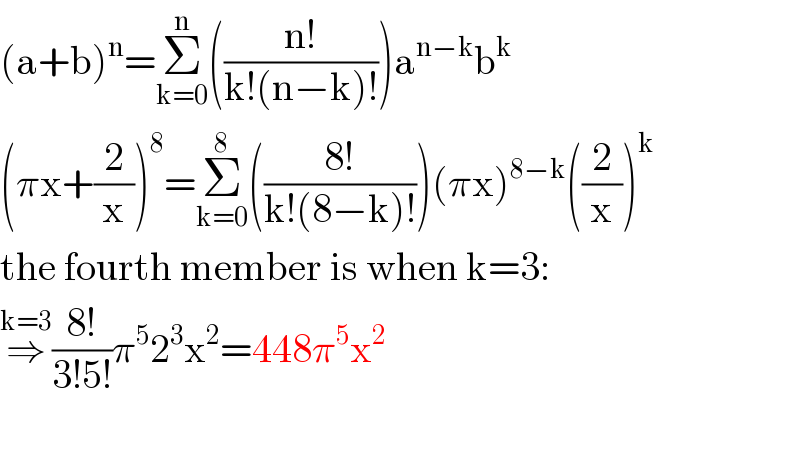
Question and Answers Forum
Question Number 103130 by chamkunda last updated on 13/Jul/20
![find out the fourth member of the following formula after expansion [πx+(2/x)]^8](Q103130.png)
Commented by chamkunda last updated on 13/Jul/20
![please can someone help and answer this find out the fourth member of the following formula after expansion [πx+(2/x)]^8 find out the fourth member of the following formula after expansion [πx+(2/x)]^8](Q103131.png)
Answered by floor(10²Eta[1]) last updated on 13/Jul/20

Answered by bemath last updated on 13/Jul/20

Commented by 1549442205 last updated on 13/Jul/20

Commented by floor(10²Eta[1]) last updated on 13/Jul/20

Answered by OlafThorendsen last updated on 13/Jul/20

